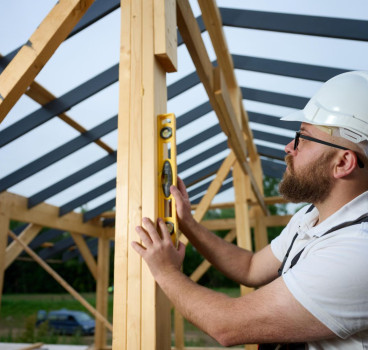Sprinklers - Do they really work? Er YES!
Sprinklers do not work. It's a statement that I have just read and I find myself asking myself ‘really – has someone just said that writes Tom Roche, Secretary of the Business Sprinkler Alliance?' With all of the evidence about how effective sprinklers are in controlling and extinguishing fires, across virtually every building type from residential to commercial and industrial - I find it astonishing that statements like this are still being made. So what's the problem with sprinklers? Do they have an identity crisis? Are they misunderstood?
I have just read an article in which a former Housing Minister indicated that sprinklers will not work on cooking fires or on electrical fires. Recently we have seen an eminent fellow from RICS suggesting similar issues with sprinklers. I have spoken in numerous meetings on the subject and heard similar.
I work for an insurance company and when I mention sprinklers people react by telling me that I would suggest that. The logic being that insurance companies do not want to have major claims and want to limit losses (yes, we do not want to see our clients have major losses and we would like to help them have smaller interruptions). If the avoidance of large claims were the only reason and sprinklers were that ineffective would insurance companies really support their use?
Fire and Rescue Services tackle fires across the country every day. They understand the challenges of those fires and the dangers, and the need to control them quickly to avoid loss of life and damage to property, and of course the danger they are exposed to when firefighting. So, if sprinklers are that ineffective why does the National Fire Chiefs Council (NFCC) advocate their use?
The NFCC supported a study of sprinklers for Optimal Economics which showed them to 99% effective. This was not an experiment, it was a not based on some staged fire test – it was real life. The study was based on data from our own Fire and Rescue Services up and down the country and fires involving a breadth of different types of buildings and uses. The insurance sector fire statistics show that electrical and cooking fires are the leading causes of fire in the UK. So if sprinklers systems were ineffective how come the research showed that they were 99% effective set against one of the biggest risks?
I am an advocate for the use of the sprinklers. I am someone who has worked on issues surrounding fire for 25 years. One thing has always been clear to me though, when I am not sure about a product, system or process I need to ask questions, check the facts and educate myself. When it comes to sprinklers I wish others would do the same – I suspect they may be surprised to find out how they actually work, their effectiveness and that they do work in a remarkably broad set of situations.
To put this into context, I have witnessed on numerous occasions people from all walks of life – from construction professional to politicians – being given a sprinkler head and asked if they know how it works. Nine times out of ten the answer is no, and when the principles of a sprinkler is explained there is a look of genuine surprise and intrigue on their faces. It therefore leads to me conclude that sprinklers are one of those things that we take for granted or dismiss with a pinch of salt – those people that understand them see the true benefits of them, or those that don't understand them all too quickly dismiss them without really being able to justify why.
No sprinklers are not sexy. No sprinklers don't come with lots of apps and widgets. And no, the mechanism for operating sprinklers is simple and effective – but that's the whole point. They work, they have always worked and as such they will continue to work. Maybe this is part of the problem – we are always looking for the next new things, but if it ain't broke, don't fix it. This is the case with sprinklers – they work. Don't let anyone tell you otherwise.
Additional Blogs

Construction site safety - is zero tolerance realistic?
Walk onto almost any construction site in the country and you will see it printed in bold letters across hoardings and induction slides: ZERO TOLERANCE. It sounds decisive, reassuring and strong. The...
Read moreIs timber construction really greener - or just trendy?
Over the past decade, timber has enjoyed something close to a renaissance. Architects talk about warmth and biophilic design. Developers highlight carbon storage. Contractors discuss speed of...
Read more

4 Must-Follow Health and Safety Habits for the Modern Jobsite
The risks in modern jobsites are constant. Falls, chemical exposure and heat illnesses continue to injure workers across construction and related industries each year. The best way to reduce those...
Read more